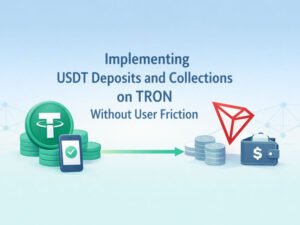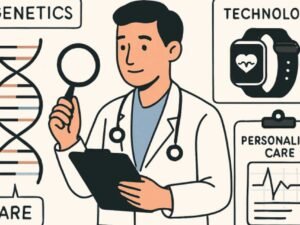What is rather common experience, is the fact that you just had a meal and feel really full. But, you begin to feel hungry again after eating sometime later. Probably, you are pondering over the question of what can be a reason for a feeling of hunger after you eat, or perhaps, on why do you feel hungry after eating. In this article, we shall investigate science behind this phenomenon and what may cause you to get the feeling of hunger even after you have satisfied your hunger by having a meal
Why We Feel Hungry After Eating
Why hungry after eating?,Let’s see what is happening in our body while we eat. The digestive system breaks down our food into the forms of nutrients absorbed by the bloodstream. It all creates a chain of hormonal responses that must alert your brain telling you that you are full. However, several things interfere with those signals that have people feeling hungry even after eating.
When you eat, your stomach expands or stretches. With this message telling your brain that you have eaten, a hormone called leptin is produced and helps regulate your appetite. Leptin acts like the message to your brain saying that you have eaten enough and it is time to stop eating. There are, however, just so many reasons why this system fails at times and makes you hungry even after eating.
Why Am I Hungry after I Eat? The Role of Hormones
Why am I hungry after I eat?,One primary reason for this phenomenon is the imbalance resulting from ghrelin and the leptin release activities. Ghrelin is known as the “hunger hormone” since its effect is to stimulate one’s hunger, while leptin reduces hunger. This is odd because the more you eat, the more leptin is pumped into the body, but the lesser ghrelin is; thus, you will feel hungrier if ghrelin has not yet well decreased from what you have eaten or if the leptin increased not quite well.
A case of leptin resistance is a scenario where the brain fails to have any proper response to leptin, meaning you feel hungry even after eating. This condition quite often comes about in overweight or obese persons because their bodies produce more leptin; however, the brain fails to act in the best possible way it can to that.
Another player in hunger is the hormone that regulates your blood sugar: insulin. If your blood sugar goes through the roof and then crashes precipitously after a meal, as it does when you eat foods loaded with sugar or refined carbs, your body will trigger a feeling of hunger pretty short order afterward.
Why Am I Still Hungry After Eating? The Type of Food You Eat
Why am I still hungry after eating?,Type of food also causes fullness. Whenever you take up refined carbs or any other form of sugary foods, the blood sugar in your body will shoot up high but crashes even faster. Thus, some time later on, you will begin to feel hungry again. Such variations in blood sugar levels can also make you feel hungry to be hungry even after having taken a meal, just like when you eat white bread, pastries, or take soda.
On the contrary, the full-of- protein, fiber, and good fats foods linger for a longer time inside the stomach, thereby delaying hunger pains and, consequently, are effective for a longer time in keeping the stomach full. In case of a food that does not have protein, fiber, and good amounts of fats, you would once more land up hungry after having eaten because food lingers in the stomach for little time and does not keep one long satisfied.
Why Do I Feel Hungry After Protein?
You might wonder, why do I feel hungry after eating protein? Perhaps the most intuitive expectation a person has for an appetite-suppressing nutrient is that it would satisfy them. Here are a few possible explanations.
First of all, let’s not forget that all proteins are not the same. For instance, lean proteins-beef or fish-are lean but not as filling as some of those foods with associated fats, like eggs or fatty fish. So in their pure form of protein-no fats or fiber, to be specific-they are not going to sustain your hunger for too long.
Thus, large amounts of protein consumed within a short period can be burdensome for your body’s digestive system, thereby causing low full absorption and utilization of nutrients in your body. In case your body is incapable of digesting absorbed protein, you are prone to hunger even after eating.
Why Am I Still Hungry After Eating? Emotional and Environmental Factors
Sometimes, however, hunger is not due to the physical need to eat. Another such phenomenon is referred to as emotional eating, which also accounts for the sensation of hunger after the meals, since in fact, one hasn’t needed those calories yet. You then use food as a comfort item when you are stressed or anxious, or even bored, with having already eaten. It, thus causes hunger after eating even when your body doesn’t require more food.
This is one more environmental cause; you are eating fast and/or eating while your eyes are glued to something else, perhaps a show. Your brain does not receive the whole signal that you are full. It will make you overeat or feel hungry after eating when you eat too fast because your body did not get a chance to realize that it’s full.
How to Prevent Feeling Hungry After Eating
If you experience hunger too often even after you had your meal, then use these tips to help suppress your appetite:
- Eat More Fiber: Fiber-rich foods, including vegetables, whole grains, and legumes, take longer time to digest; hence, they help digest for quite some time.
- Add Protein with Healthy Fats: Paired with protein, that healthy fat-which can be avocado, olive oil, or nuts-will keep your stomach feeling fuller for longer.
- Refrain from Refined Carbs and Sugary Foods: They tend to cause high blood sugar spikes, then bust, which leaves you feeling hungry in a few hours.
- Eat Mindfully: It is eating slowly, paying close attention to the feelings of hunger and fullness in the body; it will help you notice when you have had enough.
- Drink lots of water: You might feel hungry due to a quite normal feeling of thirst. Avoiding unnecessary cravings will hence be dealt with by taking plenty of water during the day.
- Do stress-reducing activities: Do activities that help reduce emotional intake, such as meditation, yoga, or deep breathing.
Conclusion
It is depressing to feel hungry after eating. To take corrective measures against this, you have to learn the science behind it. Hormonal imbalance, food types, emotional factors, and habitual eating patterns contribute to your senses of satisfaction post-breakfast. Conscious choice of food, slower eating, and stress management can work to prevent hungry after eating and reduce a feeling of hunger when it is too early.










